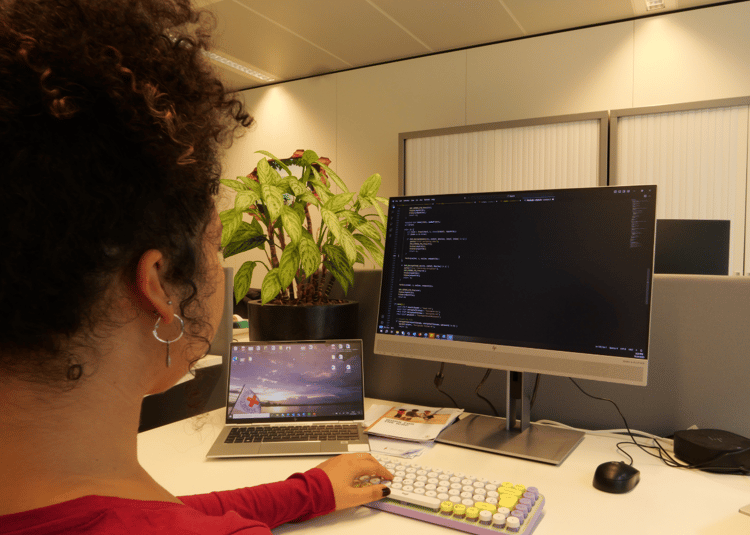All these technological developments – no matter how big or small – have the potential to render more conventional humanitarian methods obsolete and create new dangers. Innovations are often aimed at improving efficiency, but even as we embrace technology, it is important to consider the hazards that come with these advancements. Some of the main risks are described below.
Cybersecurity and data privacy
The humanitarian sector handles large amounts of personal data, which can create privacy and security concerns. Using refugees’ personal data for purposes beyond humanitarian aid could, for instance, jeopardize their safety. This has prompted humanitarian organizations like the ICRC to invest in robust data protection structures and handling processes and to work with tech professionals, in a bid to safeguard the people we seek to help. This enables us to deliver on our mandate of protecting the lives and dignity of people affected by armed conflict and other violence.
Misinformation
Misinformation is everywhere – anyone with the wrong intentions can use technology to spread falsehoods on a range of platforms. Humanitarian players can therefore no longer rely on their reputation of neutrality to guarantee their protection. Misinformation that directly targets a humanitarian agency can have adverse reputational effects that can pose security risks in the field.
The changing nature of war
Warfare technologies have evolved substantially over the centuries – going from spears and swords to the use of autonomous weapons and cyber warfare – and technological changes will continue to drive the shift in methods of warfare. The far-reaching and destructive impact of today’s weapons means that other technologies have had to be developed to map out needs and provide aid. Geospatial specialists, for example, play an increasingly important role in the humanitarian sector by tracking activities in the field and providing up-to-date information on such things as the destruction of infrastructure. Legal practitioners have also become heavily involved in the debate on the use of these weapons.
Technological disruption
As technology continues to evolve, humanitarian organizations must continue to adapt and take on board the mindset change needed to harness the full potential of new technologies. There is a need to explore ways to serve connected communities more efficiently, while also considering the challenges posed by disruptions to our digital connectivity.
Furthermore, issues relating to artificial intelligence, machine learning, virtual reality, digital emblems, technological diplomacy and other areas will continue to arise. In the humanitarian sector, we must proactively address these challenges by adapting our practices, policies and procedures to ensure the safety and privacy of the individuals we serve.
Join the discussion
These are some of the topics that will be discussed at the ICRC career webinar entitled IT with an Ethic taking place on 22 November at 12 noon CET. Join our team of tech professionals from around the world to learn how you can make a difference and help shape the future of humanitarian aid through technology.
Register Here for the ICT Webinar
The ICRC global talent pool is a database of diverse professionals who are interested in working at the ICRC. Whether you are looking for a new role or curious about our future opportunities, our team will engage you to explore your interests in working with us.
